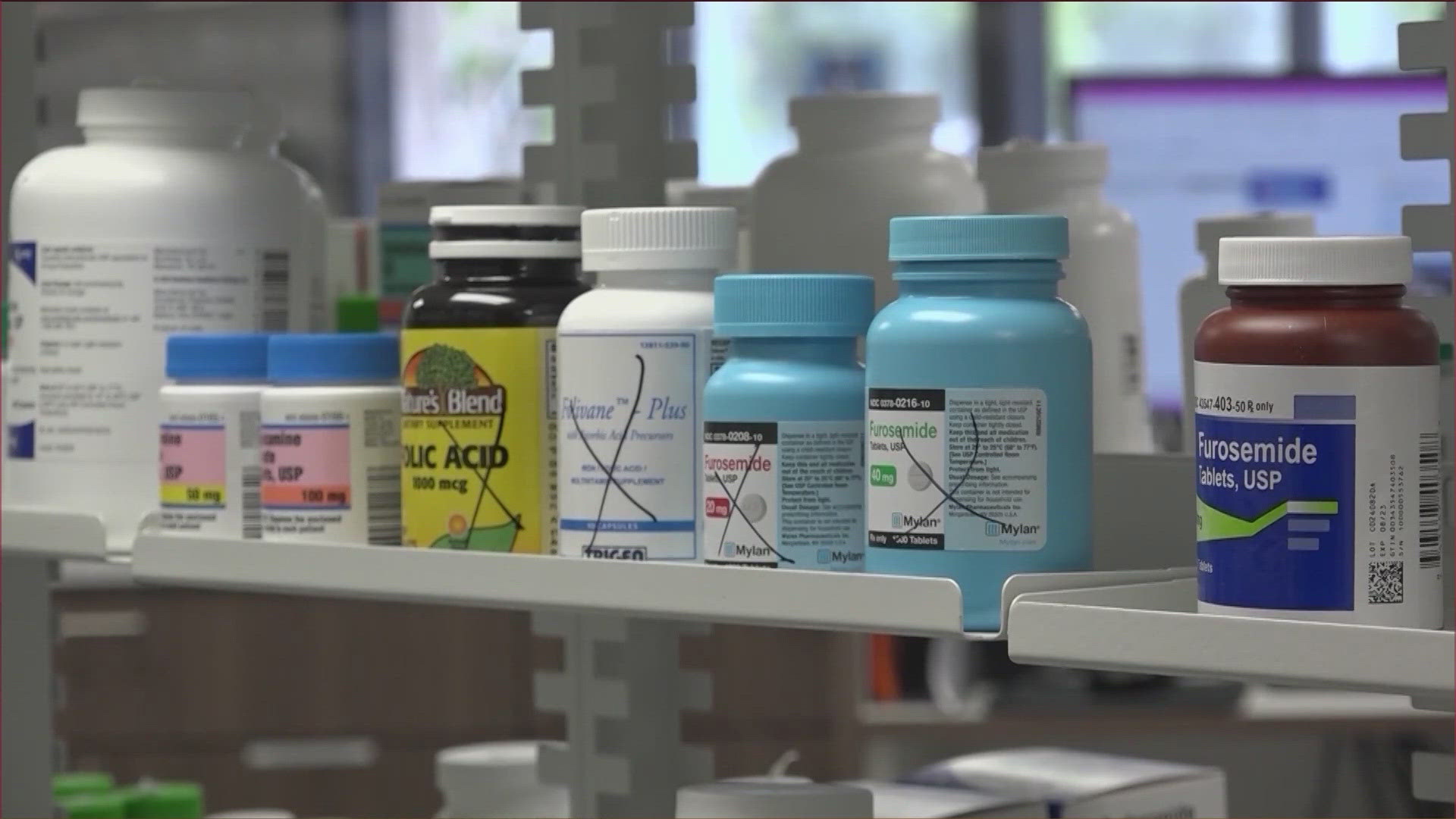AUSTIN, Texas — Hot Texas summer temperatures can cause heat-related illnesses for anyone, but people on certain medications can be even more prone to them.
So far this June, Austin-Travis County EMS (ATCEMS) said it has responded to 173 heat-related calls but is expecting that to increase with the rest of this month's high temperatures. Last June, ATCEMS responded to around 234 heat-related calls in total.
The CDC reports some of the most commonly prescribed medications that contribute to heat sensitivity are diuretics, Angiotensin-converting enzyme or ACE inhibitors, anticholinergics and Selective Serotonin Reuptake Inhibitors (SSRIs).
ATCEMS said these medications can create a greater sensitivity to the heat:
- Antipsychotic medications (affect the body’s temperature and impair sweating)
- Diuretics and ACE Inhibitors (affects the body’s kidney functions, blood flow and body temperature)
- Anticholinergics (impair sweating, decreased blood flow to skin, affects the body’s temperature)
- Antihistamines (impair sweating)
Darren Noak with ATCEMS said it’s important to take precautions if you take any of these medications, emphasizing the importance of hydrating before you go out in the sun.
“As we always say, you know, pre-hydration and continue hydration through the day,” Noak said. “It’s not always about what you hydrated today or what you drank this morning, it’s what you did you do last night.”
Noak said in extreme temperatures, it’s also important to avoid alcohol and caffeine because both can cause further dehydration.
Another tip ATCEMS had to stay safe in the heat is to limit your activity during the hottest parts of the day. It's something Pflugerville resident Ron Bickerstaff and his dog, Sophie, try to do for their daily walks.
"We usually go early in the morning. Our goal is to leave the house by sun-up," Bickerstaff said. "Once the temperature's above 82, forget it, she's not walking."
Back in 2022, Bickerstaff was diagnosed with a serious cancer and had to go through six weeks of radiation and four rounds of chemo. During that time, doctors advised he stayed indoors because the chemo drugs would make him sensitive to the sun.
"Always wore a long-sleeve shirt when we did go out. But again, during that time, we'd go out early in the morning or after dark," Bickerstaff said.
Differences between heat stroke and heat exhaustion
ATCEMS said there are certain signs to look out for when a heat-related illness is getting more serious. Some symptoms of heat stroke can include an altered mental state, slurred speech, an inability to speak and unconsciousness.
Noak also said heat stroke can have a physical effect on the body.
“You can get to a point with heat stroke that they are no longer sweating, so very red hot and dry skin, versus a moist, really profuse sweating state in heat exhaustion,” Noak said.
How to treat heatstroke
ATCEMS uses the phrase, "Move them, cool them, call 911."
For someone experiencing heat stroke, ATCEMS recommends moving them out of the heat immediately. Once they are out of the hot environment, medics say to start cooling them down by providing shade or loosening their tight clothing.
Next step, to cool them down, ATCEMS said to put water on their body and fan them. If the person is conscious, you can start giving them small sips of water or potentially an electrolyte drink.
If you have any questions on the effects your medication has on your body, contact your doctor or pharmacist.
Ultimately, they say to call 911 if symptoms are not improving.

